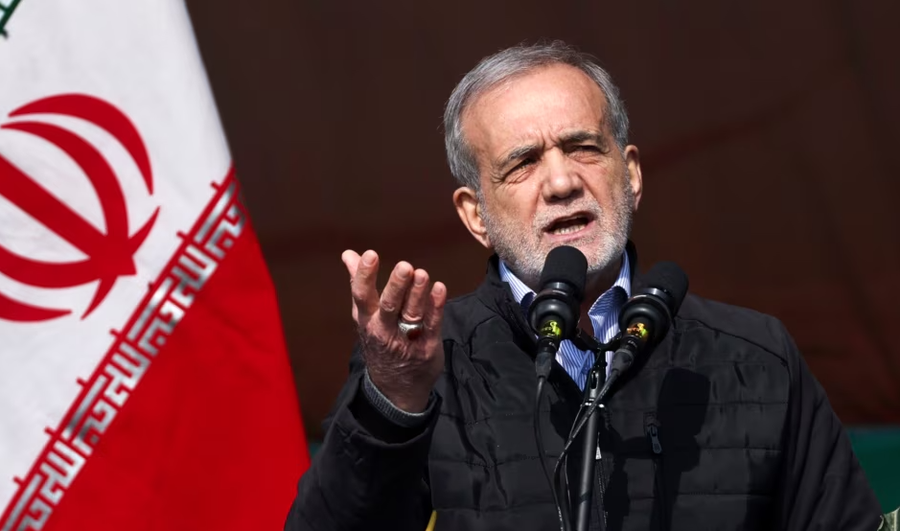
Iranian President Masoud Pezeshkian has publicly rejected holding talks with Washington over Tehran's expanding nuclear program.
Earlier this month, United States President Donald Trump proposed direct talks in a letter sent to Tehran.
"Although the possibility of direct talks between the two sides was dismissed in this response, it was emphasized that the path to indirect talks remains open," Pezeshkian said in a televised statement on March 30, referring to Trump's letter.
While senior Iranian officials have previously spoken out against the idea of holding nuclear talks with the United States, this is the first time Iran has officially rejected a US call for negotiations.
Since Trump returned to the White House, his administration has repeatedly stated that Iran must be prevented from obtaining nuclear weapons and has previously not ruled out the possibility of using military action if Iran ignores Trump's efforts at talks.
Pezeshkian's statements are expected to increase tensions between Tehran and Washington over Iran's nuclear program.
Iran has long insisted its program is for peaceful purposes, but Iranian officials have also threatened that it could decide to build nuclear weapons, amid escalating tensions with the United States over sanctions and renewed bombing of the Gaza Strip after a ceasefire in Israel's war with Hamas broke down.
Hamas – the Iranian-backed Palestinian group – is designated a terrorist organization by the United States and the European Union.
A report published in February by the UN nuclear agency found that Iran has accelerated uranium production to near weapons-grade levels.
A delegation from the United Arab Emirates delivered Trump's letter to Tehran, proposing nuclear talks with the United States earlier this month, but hours before its arrival, Iran's supreme leader, Ayatollah Ali Khamenei, had already rejected the possibility of talks with the Trump administration.
Similar comments were made by Iranian Foreign Minister Abbas Araqchi on March 27, when he said Tehran had sent an official written response to Trump via Oman, stating that Iran would not hold direct negotiations as long as Trump's "maximum pressure" campaign is in effect.
Pezeshkian gave the most direct stance yet that Tehran does not accept direct talks, although he left the door open for indirect talks with the United States and confidence-building efforts.
"We don't avoid talks; it's the breaking of promises that has caused problems for us so far," Pezeshkian said.
"They need to show they can build trust," he added, referring to the United States.
Iran's economy has suffered from years of sanctions, especially after Trump, during his first term, withdrew the United States from the historic nuclear deal with Iran and reimposed sanctions.
Tehran is seeking ways to ease or completely lift those sanctions, but the public rejection of Trump's letter could lead to new pressure from Washington and other powers that are concerned about Iran's nuclear program.
More sanctions could be imposed if Tehran fails to reach a deal.
With the 2015 nuclear deal set to officially expire in October 2025, world powers still part of the pact have just months before they lose the ability to reimpose UN sanctions on Iran. (A2 Televizion)











